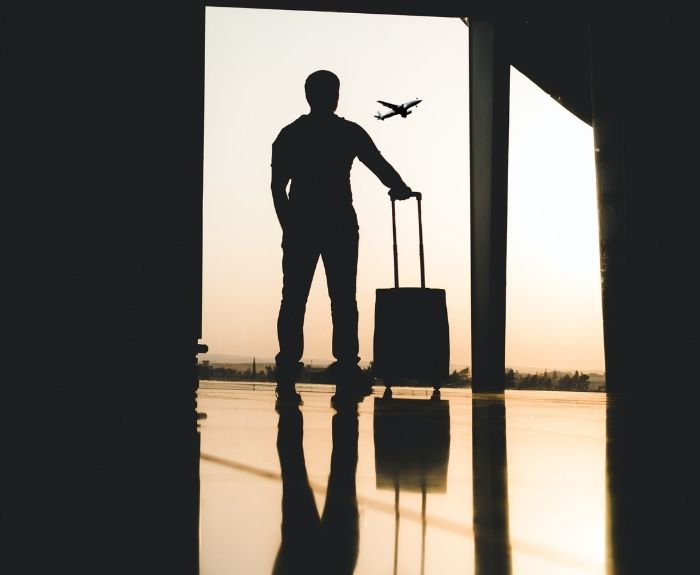
 Skip to the content
Skip to the content
The pandemic breakout brought the travel industry to almost a complete halt in 2020. Though the unprecedented times become precedented and the global vaccine rollout helped relax cross-border restrictions, the new variants looming trigger general unrest and concerns around holidays.
Travel insurance statistics also show that the habits of Britons are also changing due to the UK’s departure from the EU, which has also prompted the public to purchase coverage more frequently. So, to stay in the loop of the latest industry goings-on, scroll down to our collection of travel insurance stats and facts.

Britain’s love affair with overseas holidays is no secret. Almost half of the citizens would prefer abroad destinations over domestic ones despite the pandemic, while a further 18% stated that their main motivation to take an international trip is for a vacation.
(YouGov, YouGov)
While a whopping 75% of Britons didn’t think they would have a regular summer holiday in 2021, the relaxation of requirements has made the public more eager than ever to go on a holiday in 2022. As many as 49% of Britons say the pandemic has made their holidays more important than before.
(YouGov, ABTA)
Travel insurance industry statistics indicate a shift from single-trip insurance ownership to multi-trip policies—compared to single-trip policies, multi-trip generally held up with a drop from 25% to 21%. There’s also a general tendency to opt for passive ownership, i.e. ownership via packaged bank accounts rather than standalone policies.
(PR Newswire)
More than half of citizens opt for travel insurance before going on a holiday across all age groups. People aged between 50 to 65 are the most likely to pay for coverage at 78%, while the group aged between 18 and 24 is the least likely at 52%, UK travel insurance statistics show.
(Statista)
The travel insurance market size shrunk significantly due to the disruptions caused by Covid-19 restrictions, with its value dropping by 51%. With the simplification of both domestic and international travel, the situation presents new opportunities for providers.
While the price was the main determinator for buyers for a long time, people now prioritise protection against Covid-related risks whilst purchasing holiday coverage.
(Mintel)
Though the demand for the coverage of the sort is sky high, UK travel insurance statistics from the research Which? conducted reveal that the majority of providers don’t offer “meaningful” coverage, while some offer next to nothing when it comes to cancellation for reasons related to the coronavirus pandemic.
Travel insurance historically doesn’t cover epidemics, yet some industry leaders change course to meet the growing demand. The US-based Seven Corners’ package with Covid coverage, for example, generated 80% of all sales in a year.
(The Guardian, Reuters)
Travel insurance claims statistics show that providers paid 471,000 claims worth a total of £377 million over a year to travellers who needed help whilst they were abroad. £197 million of this was to cover the emergency medical treatment costs, while £141 million was for cancellations, according to ABI’s most recent data.
(ABI)
Insurance statistics across the UK reveal that motor insurance buyers are most likely to switch providers at 37%, followed by joint home/building contents insurance customers at 36% and standalone home contents at 23%.
UK travel insurance statistics show that 15% of owners of such coverage are likely to shop for a different provider, the same as pet insurance buyers. Only 4% of medical insurance buyers are thinking about switching their companies.
(YouGov)
Lots of regulation changes were introduced upon Britain’s departure from the EU and travel requirements are a big chunk of the changes. The EU has rendered it compulsory for British citizens to obtain health protection to cover emergency expenses whilst in the EU.
While travellers can opt for UK-issued or global health cards, they are not applicable in countries like Norway or Switzerland—it is advised to purchase private travel insurance to be fully covered.
(ONS, Schengen Visa Info)
Global travel insurance statistics from Market Insights’ report forecast the primary driver for expansion to be the growing demand for extreme sports across the tourism industry where participants are more likely to purchase coverage. There’s also a growing demand for customisable policies, including coverage for the disruption caused by the pandemic.
(ITIJ)
Unlike British travellers, Americans have very low confidence in “the new normal”. The majority of travellers, 62% of business and 58% of leisure, believe their lives will be further disrupted by Covid in 2022—maybe even more so than in 2021.
(Travel Again)
With the lowering confidence and looming new variants, many Americans turn to purchase coverage for their holidays. The public is now also more inclined to consult a travel agent, with 34% thinking an agent would be able to navigate the complicated travel restrictions.
(AAA News Room)
Travel confidence across the EU is shaky just like the rest of the world. While travellers are most comforted by the global vaccination rollout, they are also mindful of Covid-19 management and health and safety protocols at the destination. 14% are concerned about changing travel restrictions and 12% about becoming ill during their trip.
(European Travel Commission)
While some countries had insurance requirements in place due to diplomatic reasons, many have introduced it after 2020, following the pandemic breakout—some of which require specific coverage against Covid-19 treatment whilst in the country, these include Bermuda, Israel, and Jamaica.
(Insure My Trip)
Travel insurance statistics from Berkshire Hathaway’s latest report suggest that not only do more people purchase travel insurance more often, customers are also becoming more conscious about deals. One-third of respondents cited knowing what travel insurance covers as a reason to buy coverage more frequently in 2021, an increase from 23% in 2020.
(Business Wire)
Though Britons are optimistic about their upcoming holidays, people across the pond don’t share the sentiment. In any case, travel insurance statistics reveal that there’s a general consensus that coverages provide the peace of mind required for travellers to navigate themselves in this climate of unpredictability. As more countries introduce mandatory coverage as a requirement for entry and Brexit regulations, it is expected that insurance will become an integral part of holidays of the new normal.
Sources: YouGov, YouGov, YouGov, ABTA, PR Newswire, Yahoo Finance, Mintel, The Guardian, Reuters, ABI, YouGov, ONS, Schengen Visa Info, ITIJ, Travel Again Project, AAA News Room, European Travel Commission, Insure My Trip, Business Wire, Nimblefins, Nerdwallet, Euronews, Citizens Advice
The global travel insurance market was valued at US$15 billion in 2020 and is expected to grow at a compound annual growth rate of over 14% between 2021 and 2030. (Yahoo Finance)
Cancellation is the most common claim, according to global travel insurance statistics. (Nimblefins)
Unless specified otherwise, most policies don’t allow cancellation for any reason. Regular policies would also leave out named storms, pregnancies, medical tourism, and refundable reservations. Within the context of Covid, many policies would also not cover travellers who are taking a trip to a country that the FCDO advises against. (NerdWallet, EuroNews)
Travel insurance offers protection in case your trip doesn’t go as planned. Travel insurance statistics show that policies typically cover your expenses if you are stranded due to circumstances beyond your control and there’s no rep to help sort out the problem, or if you fall ill during your trip, it’ll cover your medical costs or emergency travel costs to get home. (Citizens Advice)